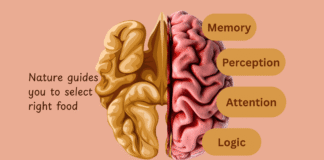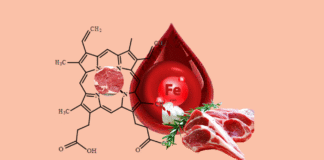Our body needs macro and micronutrients for proper functioning, irrespective of gender and age. Micronutrient deficiencies have many direct and indirect consequences, including delays in growth and development, problems in cognition and lack of immunity. Micronutrient insufficiency is associated with different aetiologies, most often linked with socio-economic factors, lack of knowledge and deficit due to monotonous regimen. While the need for micronutrients such as iron, zinc and magnesium is comparatively high in children, deficiency of micronutrients is more widespread among children than adults. According to studies and surveys, anorexia is more prevalent among preschool children who have the most demanding energy needs.
Zinc Deficiency, Leptin Secretion, and Loss of Appetite
Although loss of appetite in children has multiple causes, zinc deficiency is one of the most critical and ignored factors determining food intake. Zinc has a very important role to play in appetite regulation by affecting leptin secretion. Leptin, a hormone primarily secreted by fat cells, acts as a signal for the brain, informing it about the body’s energy reserves and needs. When leptin levels are high, the brain infers this as adequate energy storage and favours decreased appetite and increased energy expenditure. Conversely, low leptin level is interpreted by the brain as hunger and thus promotes energy conservation. Since the release of leptin is proportional to the amount of body fat, starvation or caloric restriction causes a decrease in stored fat and consequently a reduction in leptin production. Deficiency of zinc is associated with a decline in leptin secretion and loss of appetite, and an increase in appetite and food consumption have been noticed in children after zinc supplementation. In different trial studies, zinc supplementation reduced incidences of anorexia; undernourished and children with low zinc level showed an increase in appetite and growth.
Association between Zinc, Food Taste, and Appetite
Zinc is not only critical for leptin secretion but also for sensing taste and smell. A deficiency of zinc can lead to a reduced sense of taste, making food bland or unappealing. As a result, children deficient in zinc become more selective about what they eat. Prolonged picky eating can further intensify zinc deficiency.
How much zinc is recommended for children
According to Health Canada, the Recommended Dietary Allowance (RDA) for zinc depends on children age. The RDA is 3 mg/day for infants of 7-12 months and children aged 1-3 years, 5 mg/day for those aged 4-8 years and 8 mg/day for children aged 9-13.
Food that boosts zinc levels in children
You can ensure the daily intake of zinc in your children’s meals by including shellfish, beef, poultry, legumes, nuts, and seeds, fortified cereals and dairy products.




